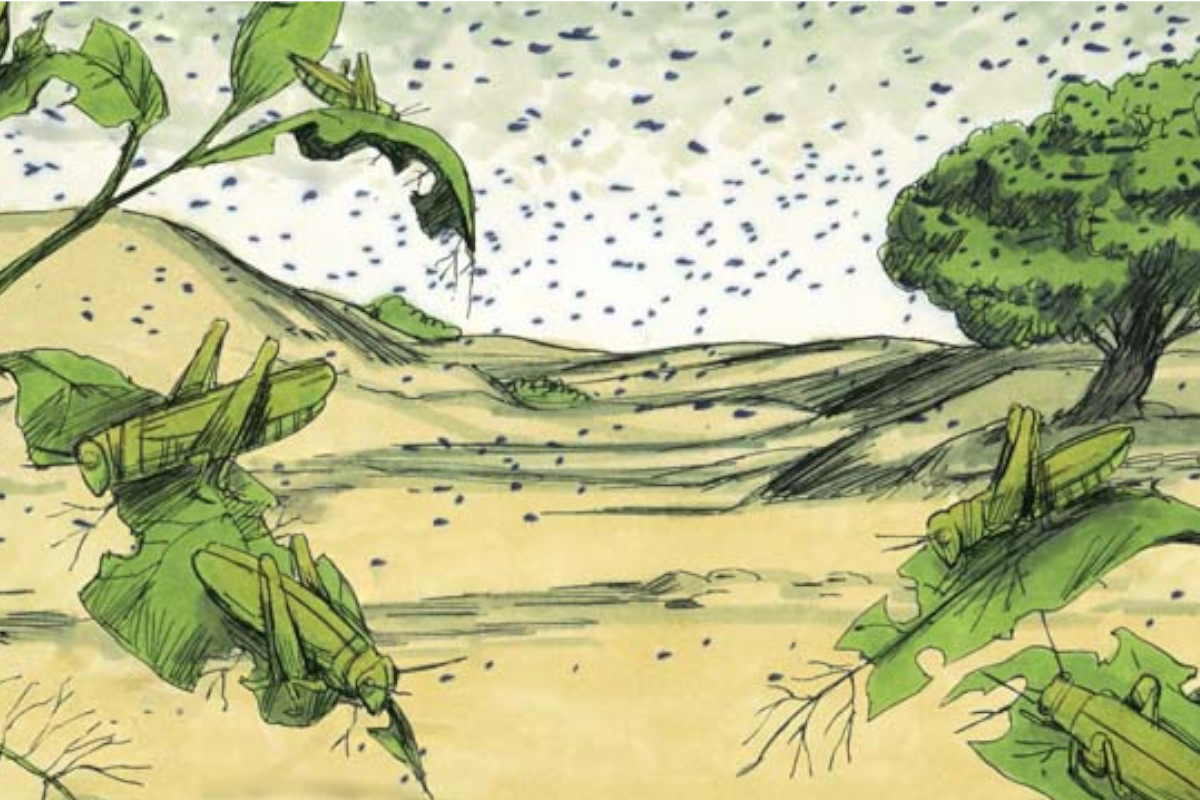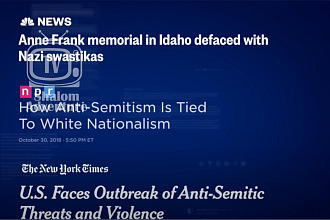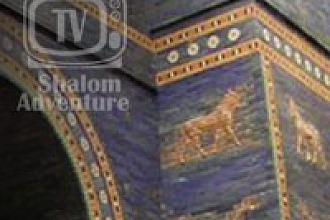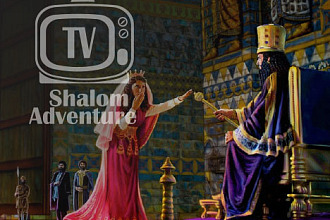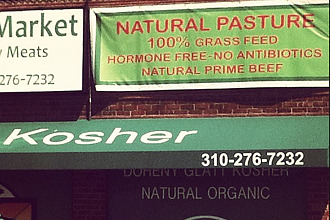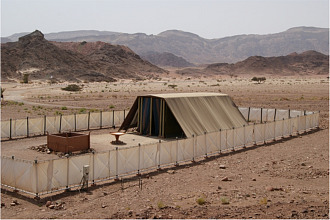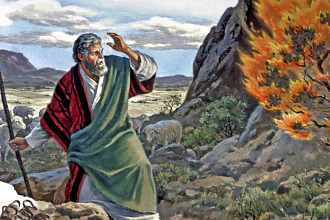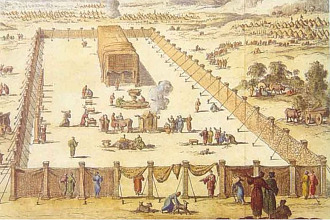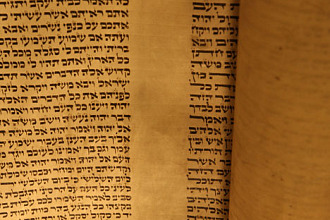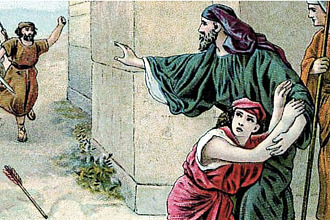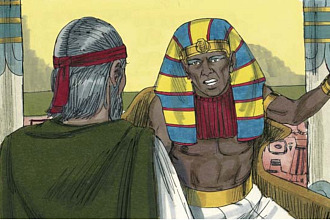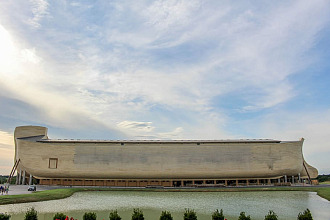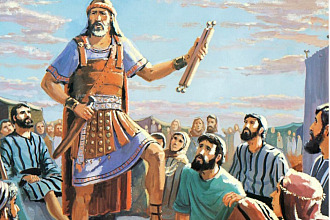Parasha for the Week: Bo: Exodus 10:1 - 13:16.
Haftarah for the Week: Jeremiah 46:13 – 28.
Besorat Yeshua: Mark 14:32 – 44.
Overview
G-d tells Moshe that He is hardening Pharaoh's heart so that, through miraculous plagues, the world will know for all time that He is the one true G-d.
Pharaoh is warned about the plague of locusts and is told how severe it will be. Pharaoh agrees to release only the men, but Moshe insists that everyone must go. During the plague, Pharaoh calls for Moshe to remove the locusts, admitting he sinned. G-d ends the plague but again Pharaoh fails to free the people of Israel.
The country, except for Israelites, is then engulfed in a palpable darkness. Pharaoh calls for Moshe and tells him to take all the people of Israel out of Egypt, but to leave their flocks behind. Moshe tells him that the animals are needed for sacrificing.
Moshe tells Pharaoh that G-d is going to bring one more plague, the death of the first-born, and then the Jews will leave Egypt.
Pharaoh warns Moshe that if he sees him again, Moshe will be put to death.
G-d tells Moshe that the month of Nissan will be the first month of the year. Israel is commanded to slaughter a sheep as a Pesach offering, its blood put on their door-posts, and its roasted meat eaten.
The blood on the door-post will be a sign that their homes will be passed-over when G-d strikes the first-born of Egypt. G-d's people are told to memorialize this day as the Exodus from Egypt by never eating chametz on Pesach.
Moshe relays G-d's commands, and Israel fulfills them flawlessly. G-d sends the final plague, killing the first-born, and Pharaoh sends the Israelites out of Egypt.
Bo: Come
The name of this week's Parasha, is Bo, which means "come." Most of the Bible's translations translate this word "go." The New Revised Standard Version says, "YHWH said to Moshe: Come to Pharaoh! For I have made his heart and the heart of his servants heavy-with-stubbornness, in order that I may put these my signs among them" (Ex. 10:1).
Let's Remember the Exodus
Rabbi Shaul says, "These things happened to them to serve as an example, and they were written down to instruct us, on whom the ends of the ages have come” (1Cor. 10:11). The stories in the Torah are not merely historical events; they are lessons and instructions for all generations. The story of the Exodus must be recalled every day in keeping with the Torah's instruction, "You shall remember the day you came out of the land of Egypt all the days of your life." The goal of the liberation from Egypt was, "When you bring the people out of Egypt, you will serve G-d." Without knowing between right and wrong, good and bad, one cannot be considered a free person, in the true sense of freedom. Yeshua confirmed this story saying "Very truly, I tell you, everyone who commits sin is a slave to sin. The slave does not have a permanent place in the household; the son has a place there forever. So if the Son makes you free, you will be free indeed" (John 8:34-36). In the Torah, Egypt is called, “Mitzrayim.” "Mitzrayim" means constriction and limitation. While we want to do good deeds, we are constricted and limited by the animal being ("Mitzrayim") within us. The Exodus reminds us that G-d liberates us from our own constraints and selfish tendencies through the blood of the Lamb, the Messiah. God then sets us free and empowers us by living His life in us.
Children's Education
In this week's Parsha, Bo, the Torah emphasizes the importance of educating children in serving G-d and the performance of mitzvot. We must tell our children the story of Passover and the miracles that G-d performed. The Torah tells us to answer their questions and make them aware of the importance of observing G-d's commandments. The importance of teaching children Torah was again emphasized at the giving of the Torah.
Who is Your Partner?
A man once came to a Rabbi for advice. "There is a business available for sale which is not doing well now, but I feel that I can turn it around and make it profitable. Should I buy it?" The Rabbi told him, "No, I don't think this is for you." The next day, someone else came to the Rabbi and said, "Rabbi, there is a business for sale which is not doing well. I feel that, with G-d's help, I could turn it around and make it profitable. Should I buy it?" The Rabbi said, "Go ahead buy it and you have my blessings! When the first person heard that the Rabbi advised the other one to buy the business, he was very upset, "Rabbi, why didn't you tell me to buy it?" "When you asked me if you should buy the business, you said that you would turn it around. So I told you not to buy it, because I felt it would be too much for you to accomplish. The other person asked me if he should buy the business which he could turn around with the help of G-d! With a Partner like that, I told him to go ahead!
Haftarah: Jeremiah 46:13 - 28
Parasha: Pharaoh does not want to repent and to let God's people go.
Haftarah: The haftarah announces the coming of Nebuchadnezzar, king of Babylon, upon Egypt: "This is the message the L-RD spoke to Jeremiah the prophet about the coming of Nebuchadnezzar king of Babylon to attack Egypt" (Jeremiah 46:13). Even though Egypt had been a great nation, with a great army, they would not resist the Babylonian invasion. The L-rd had decided to give Egypt to the Babylonians: "Why will your warriors be laid low? They cannot stand, for the L-RD will push them down. They will stumble repeatedly; they will fall over each other" (Jeremiah 46:15-16). Egypt would go into Exile. "Pack your belongings for exile, you who live in Egypt, for Memphis will be laid waste and lie in ruins without inhabitant" (Jere 46:19-20). What happened to Egypt is presented by the prophet as a punishment from God: The L-RD Almighty, the G-d of Israel, says: "I am about to bring punishment on Egypt and her gods and her kings, and on those who rely on Pharaoh" (Jeremiah 46:25).
Even though G-d would also punish Israel for her sin, He would not destroy her completely: "Do not fear, O Jacob my servant; do not be dismayed, O Israel. I will surely save you out of a distant place, your descendants from the land of their exile. Jacob will again have peace and security, and no one will make him afraid. . . . "Though I completely destroy all the nations among which I scatter you, I will not completely destroy you. I will discipline you but only with justice; I will not let you go entirely unpunished" (Jeremiah 46:27-28).
Besorat Yeshua Mark 14:32 - 44
Parasha: Moses announces the last plague, the death of the firstborn. "Thus says the L-RD: About midnight I will go out through Egypt. Every firstborn in the land of Egypt shall die, from the firstborn of Pharaoh who sits on his throne to the firstborn of the female slave who is behind the handmill. . . . There will be a loud cry throughout the whole land of Egypt, such as has never been or will ever be again. But not a dog shall growl at any of the Israelites -- so that you may know that the LORD makes a distinction between Egypt and Israel" (Ex. 11:4-7).
Besorah: Yeshua went to Gethsemane for a special night of prayer and anguish.
The last night of the Israelites in Egypt was a night of prayer and placing the blood of the lamb on the doorpost. Yeshua knew that He was the sacrifice: "He prayed that, if it were possible, the hour might pass from him. He said, "Abba, Father, for you all things are possible; remove this cup from me; yet, not what I want, but what you want" (Mark 14:34-36).

